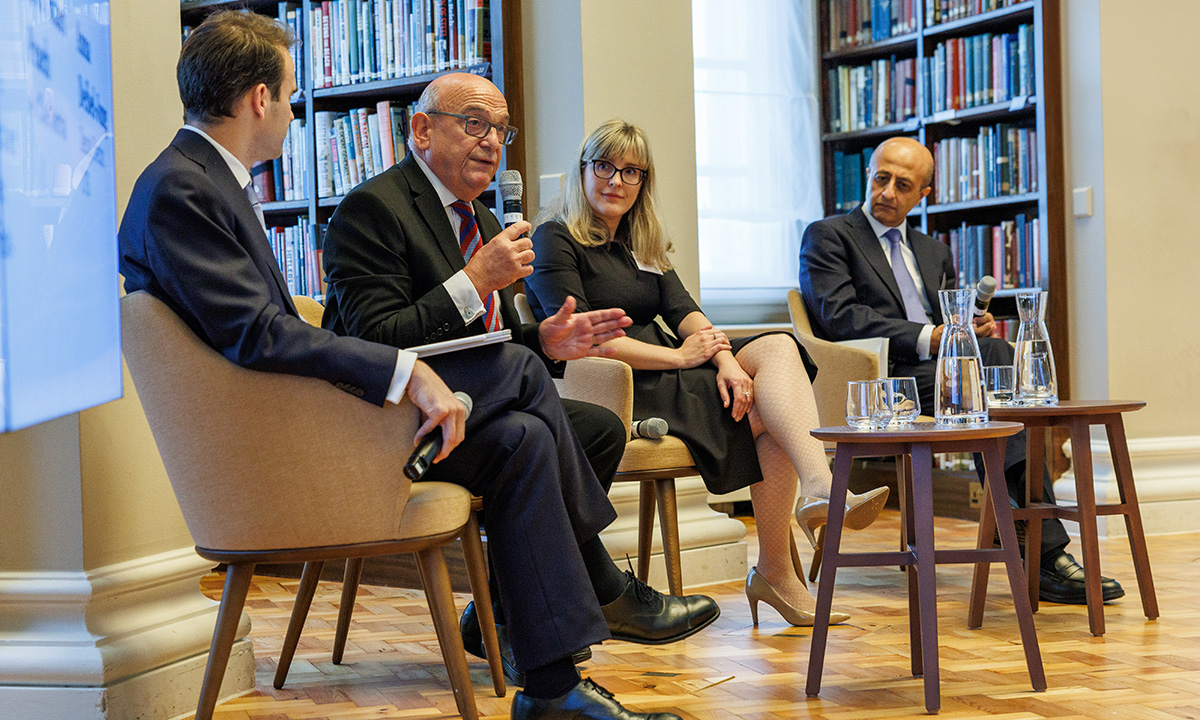Business leaders today find themselves operating in a world of heightened geopolitical risk and a growing tendency by governments to use economic and financial sanctions to manage conflicts.
We convened senior leaders recently – including Lord Stuart Peach, Air Chief Marshal of the Royal Air Force, and Lord Jitesh Gadhia, member of the House of Lords – to take stock of the geopolitical landscape and consider what business can do to mitigate the risks that sanctions pose. Here are a few of our key takeaways:
- The growing use of sanctions by the UK and allied governments reflects a new merging of economic and national security. Western governments employed sanctions during the Cold War and the UK government created the Joint Intelligence Committee in 1936 with the goal of considering economic warfare. What’s different today is the range of security threats and the way they intersect with a globalized economy. Russia’s invasion of Ukraine brought this into clear view. The UK, the US, and their allies have ratcheted up sanctions on Russia, seeing them as a way of supporting Ukraine without raising the risk of military escalation. And because Western economies no longer dominate the production of dual-use goods the way they once did and supply chains have become so extended, governments are expanding the reach of sanctions to cover financial services in a bid to constrain Vladimir Putin.
- Enforcing sanctions is a growing challenge for governments. Bad actors are always looking for ways to evade sanctions, such as Russia’s use of a shadow fleet of tankers to maintain oil exports. Unfriendly states increasingly use non-state actors like paramilitary groups or organized crime syndicates to achieve their aims, blurring the lines of conflict. And more equipment and components from China and other countries are turning up on the battlefield in Ukraine. By one estimate, roughly 100 countries accounting for 40% of global GDP are not complying with Western sanctions. This is prompting governments to redouble efforts to enforce sanctions deep into supply chains, which may accelerate a decoupling of Western and allied economies from Russia, China, and their friends. After being blocked from the SWIFT payments network, Russia has been conducting trade with China in the yuan while Beijing is positioning its Cross-Border Interbank Payment System (CIPS) as a rival to SWIFT.
- The expanded use of sanctions poses challenges and risks for business. The pace of geopolitical developments makes it difficult for companies to keep up with them, and the sanctions that often come in their wake. Britain has extended sanctions on Russia to cover a wide range of goods and services. OTSI, which will have powers to go after sanctions violations via third countries, is talking with businesses to help them comply. For companies operating mainly within one geopolitical sphere of influence, the question of what rules to follow will be clear. For multinationals with a major presence in both Western economies and China, say, compliance may be more of a tightrope walk, but there’s no ducking the obligation. Financial institutions spend about $50 billion on sanctions compliance, and institutions have faced multi-billion-dollar fines for violating US sanctions.
- Companies need to take a page from their cybersecurity playbooks. That means adapting wargaming exercises for sanctions compliance. Boards and risk committees need to dig deep into supply chains and consider a wider range of risks and scenarios. Consider how the Houthis have disrupted global shipping through the Red Sea with relatively cheap missile and drone attacks. Such wargaming exercises will be uncomfortable, which is precisely the point if you want to avoid complacency.

